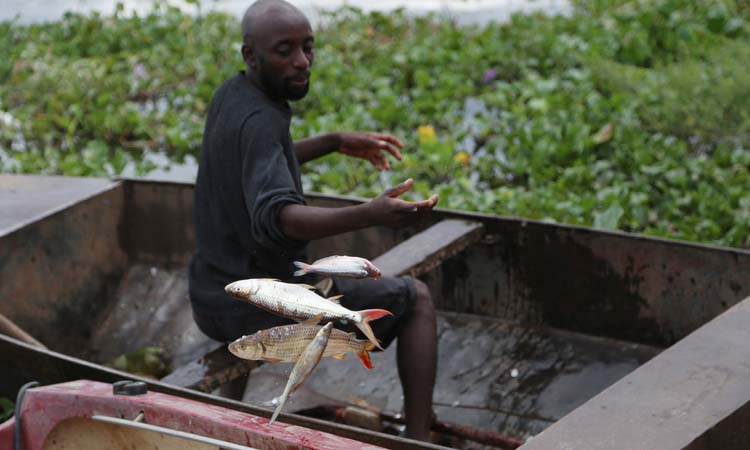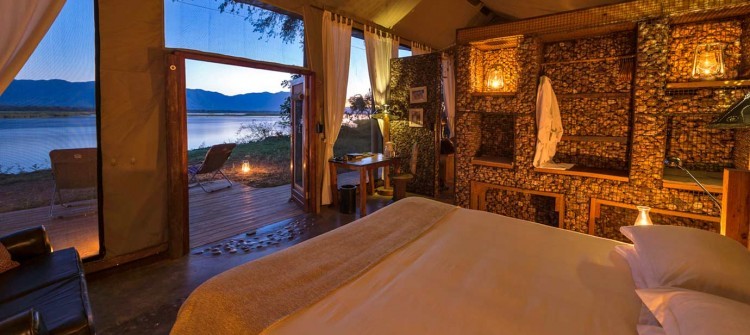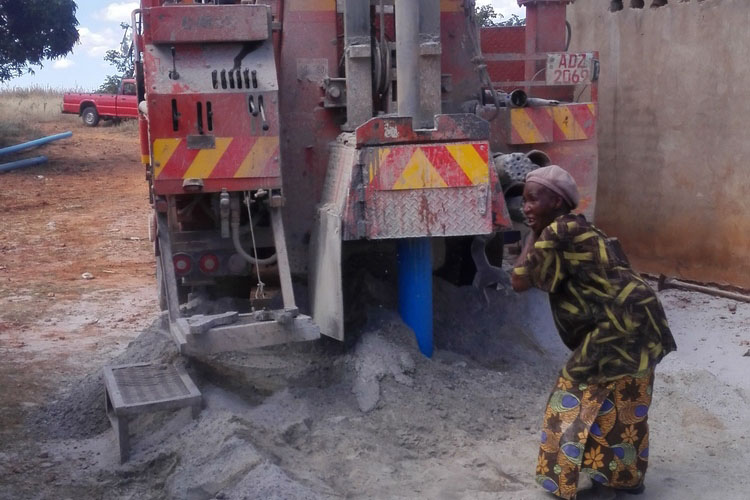
The Sunday Mail

Garikai Mazara
Many things make the Zambezi River awesome.
Besides being the fourth largest river on the continent, it prides itself as the largest east-flowing river in Africa and the largest one pouring into the Indian Ocean.
It has to travel some 2 574km from its source in the Mwinilunga area of Zambia, through six countries, to finally empty out millions of litres of water on Africa’s eastern coast.
As if its meandering journey is not a marvel in itself, in a fittingly regal manner, Mosi-a-Tunya (“the smoke that thunders”) – as it is poetically called by the BaTonga – sits majestically half-way through course.
Here, every minute an estimated 625 million litres of water gush over a precipice to create the world’s most spectacular water falls.
As the waters slows down after the mighty falls, it slithers its way to Kariba Dam (a marvel in itself, this one man-made) some 600km away.
But before the water turns the turbines at the power station, the river opens up at Mlibizi to form the superlative Lake Kariba.
It is here at Mlibizi that the Zambezi River takes the role of soul provider to Sandas Mwinde and his kinsmen.
From providing natural and man-made wonders, to generating hydro-electric power and tonnes of fish, the mighty Zambezi is what the Nile is to Egypt – a source of life.
This is the story of Sandas Mwinde, a fisherman of 20 years, who looks to the river every day for his sustenance.
His demeanour can easily tempt a stranger into thinking he is one of the formally employed residents of Mlibizi. Clad in jacket and denim pants, the fashion sense popularised by Winky D in one of his hit songs, Mwinde exudes confidence and is wont to show off his diction.
He is not your “typical” subsistence fisherman.
Just months short of his 44th birthday, Mwinde has known no other employed life except that on the Zambezi River – either on its shores or right within its belly, catching fish for a living.
Through the good and the bad times, the Zambezi River has been his all.
“I got my fishing licence in 1996 and started fishing on this river the following year. That means this year marks my two decades living off the river. I am happy to say that I have not found any reason to seek employment elsewhere,” says the fisherman, his joy in the river easily betrayed by a beaming smile.
He says the only time he did anything else was soon after completing secondary school in Hwange, when he was a curios artiste on the Bulawayo-Victoria Falls Highway.
“When I left the curios business, fishing was better paying, which I still think it is.”
He enjoins us to accompany him to his village 15km away so that he show off his 27-head of cattle “and about 60 goats” – all the spoils of the tiger fish the Zambezi is home to.
“I don’t do bream,” he says with a mild look of distate, “because bream take a lot of time and effort to catch. Tiger fish are easier to catch.”
He says he would rather buy the breams from other fishermen and then re-sell to traders who come, usually on weekends, from Bulawayo and at times Harare.
“Through the years that I have spent on the river, I have since discovered that it is more profitable to buy the bream and re-sell than to set the nets to catch them.”
Because his life depends on the river, Mwinde’s day ordinarily starts and ends on its banks.
He is either setting the nets, coming from checking the nets, selling the catch of the nets, or mending the nets.
“At any time we,” he says of his partnership with his brother Stephen, “we have three nets cast in the Zambezi, with each net being about 500 metres long. Every morning we have to check the nets if any fish would have been caught over-night. We repeat the same just before sun-set.”
Mwinde speaks proudly of the 18-member fishing co-operative of which he is chairman.
“The Busongo Fishing Co-operative is just one of the many fishing co-ops that you will find dotted on the banks of the Zambezi right up to Binga. This river means so much to many of us. Admittedly times are not as rosy as we would want them to be, but we cannot begrudge what we are getting from the river.”
Fishing is a seasonal business, and this time of the year, when it gets cold, teh returns are not too good.
Lunar cycles play a huge part in harvests, with a full moon meaning fish are at their “cleverest” and not so easy to catch. Like any retail enterprise, Mwinde’s business hinges a lot on the availability of cash, which is why he bemoans the current cash shortages.
“We hope that the country gets out of this crisis as soon as possible, maybe our business will also recover. We need traders to be coming here on a regular basis.”
Another variable is the state of health of the Zambezi River.
“The water levels are picking up now but last year it was really terrible, the river was at its lowest in recent memory. Fish thrive where the water is plenty, which means the low levels of the Zambezi in a way affect our harvests,” he explains.
A puzzle that Mwinde and other members of his co-operative have not been able to figure out is why they are not allowed to trade their fish across the river.
“Funny enough, Zambian traders come every Monday and Friday to sell their wares, among them fish, but we are not allowed into Zambia to do the same.
“Maybe it is time our governments sit down and work out how we can look after each other. “If they can come here, why can’t we go there?” queries Mwinde with the simple logic that somehow seems to often escape some of our public officials.
When he is away from the river, a break he allows himself once a week and not on any specific day, he is with his family of five children. “Family time is important and you need to be with them often. I go home to break the monotony of life here by the river banks, which has been my primary home for the almost two decades that I have been a fisherman.”



